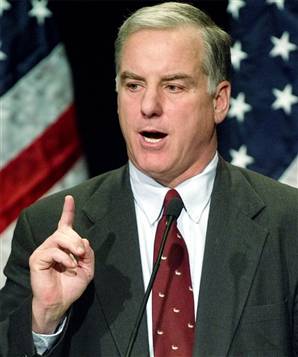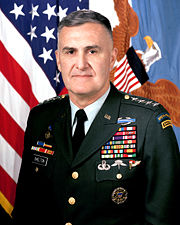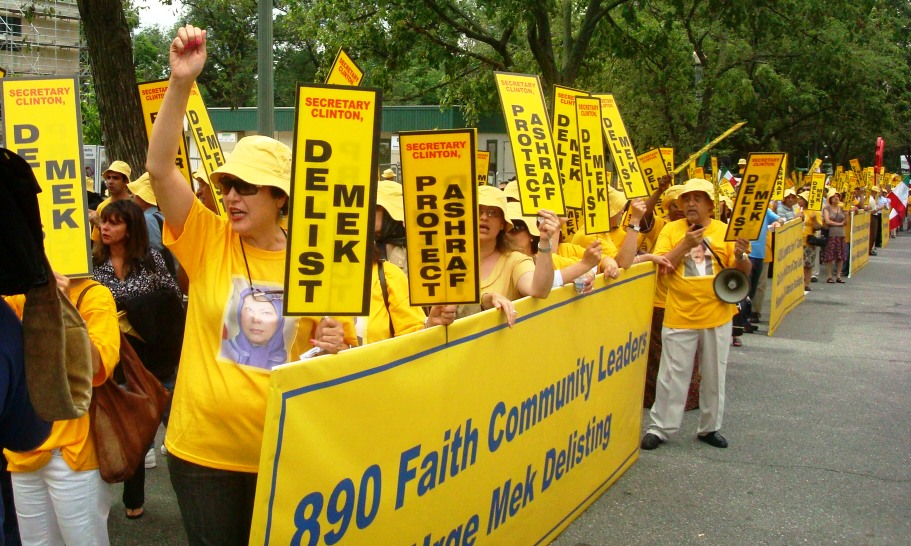The Huffington Post
At first glance, the massacre of Bosnian Muslims in Srebrenica almost two decades ago has little in common with the plight of some 3,500 dissident Iranians at a place called Camp Ashraf in Iraq.
But a closer look shows the opposite.
In 1995, Dutch forces serving as UN peacekeepers to monitor the situation during the siege of Srebrenica did nothing to protect Muslim civilians, who were turned over to the Serb military and slaughtered.
In 2003, residents of Ashraf surrendered their weapons to U.S.-led Coalition forces and, after a 16-month investigation, the U.S. government recognised each one of them as a Protected Person under the Fourth Geneva Convention and issued every resident an ID card and a “Protected Person under Fourth Geneva Convention” card.
Now, eight years later, Iraqi forces – at the instigation of their masters in Iran – have besieged Ashraf. In assaults carried out in July 2009 and last April, 47 of these “protected persons” were killed and 1071 injured. So, just as the Dutch failed in Bosnia, so has the U.S. in Ashraf.
So what?
Until recently, that might have been the answer: But then, a surprise legal event took place. On July 5, the Dutch court of appeals held the country’s government accountable for the 1995 Srebrenica massacre. The court said that the Dutch forces failed to protect the lives of civilian Muslims, and the judges ordered the Dutch government to pay retributions to families of the victims. The court rejected the argument offered by the government that its soldiers were acting under the command of the United Nations thus removing their responsibility for the situation.
Sounds a lot like Ashraf, doesn’t it?
Indeed, as the President-elect of the Iranian Resistance, Mrs. Maryam Rajavi, said the U.S. inaction is far more serious. The U.S. individually questioned every resident of Ashraf, took all their weapons, even what might be needed for self-defence, ruled that they posed no threat of terrorism, and assumed full responsibility to provide protection until their final disposition.
Nothing that has happened since relieves the United States of this responsibility. Yet, the U.S. has refused to interfere in the situation, a decision far more unacceptable than the inaction of Dutch forces during the Srebrenica tragedy. There is no doubt that the United States, by virtue of the responsibility it accepted to protect the lives of Ashraf residents, should be leading an investigation into the Iraqi actions and demanding answers for the killings and injuries committed at Ashraf.
Rather, it has turned a blind eye to the situation.
The irony is that in every area except Ashraf and the People’s Mujahadin of Iran (PMOI), whose members have lived there for 25 years, the U.S. has assailed the mullahs in Tehran and their activities in Iraq. Recently, it blamed the increase in U.S. casualties in Iraq on weapons sent there by Iran. It also has decried Iran’s export of terrorism.
Yet, it has sat on the sidelines as the Maliki government in Baghdad cosies up to the mullahs. And it has done nothing to remove the PMOI from its place on the list of terrorist organisations, a designation that goes back to the days when the State Department thought they could get closer to “moderates” in Tehran through appeasement. The mullahs are still laughing at the success of that ploy, as it advanced their programme of nuclear weapons development.
Now, it’s “put-up-or-shut-up” time for the Obama administration.
Most urgently, it must act to protect those 3,500 at-risk residents of Ashraf, whose plight is getting more desperate every day as another military assault it prepared. They don’t want reparations for their families following their slaughter; they want a safe haven, outside of Iraq.
It must also remove the terrorism label from the PMOI so it can continue to lead the struggle for a free and democratic Iran. That’s all the Iranian opposition wants – no troops, no funds, just to have the unjustified “terror” tag removed. It is this that Iran and Iraq use to justify the killings of Ashraf residents.
Lord Corbett of Castle Vale is Chairman of the British Parliamentary Committee for Iran Freedom. He is a former Chairman of the House of Commons Home Affairs Select Committee.
http://www.huffingtonpost.co.uk/lord-corbett/avoid-another-srebrenica-_b_904251.html




